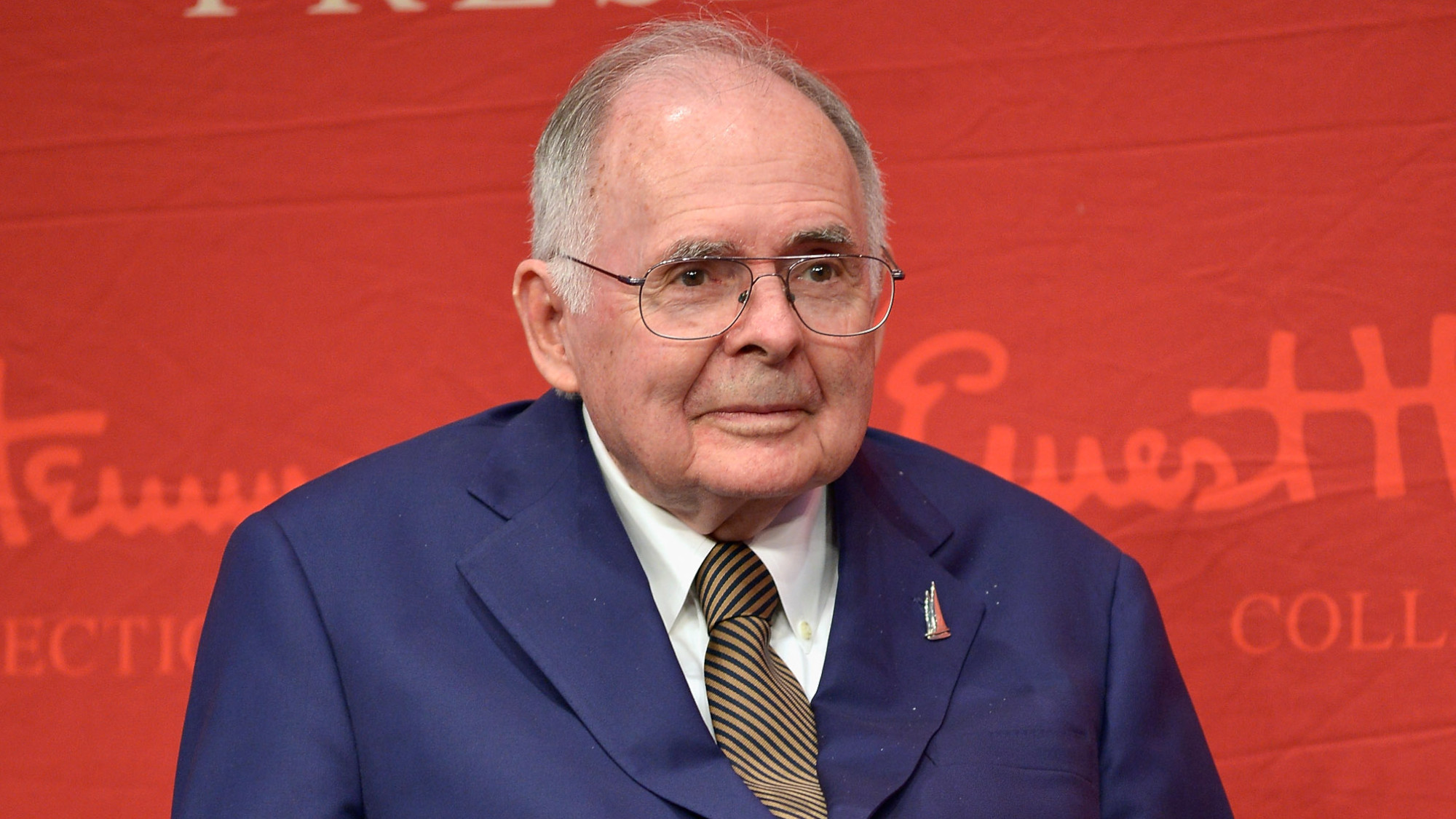George Docherty
The minister who put God in the Pledge of Allegiance
A free daily email with the biggest news stories of the day – and the best features from TheWeek.com
You are now subscribed
Your newsletter sign-up was successful
The minister who put God in the Pledge of Allegiance
George Docherty
1911–2008
The Week
Escape your echo chamber. Get the facts behind the news, plus analysis from multiple perspectives.

Sign up for The Week's Free Newsletters
From our morning news briefing to a weekly Good News Newsletter, get the best of The Week delivered directly to your inbox.
From our morning news briefing to a weekly Good News Newsletter, get the best of The Week delivered directly to your inbox.
One day in 1954, the Rev. George Docherty asked his 7-year-old son, Garth, what he had done in school. “Well,” said Garth, “we started with the Pledge of Allegiance.” He then rattled it off, concluding, “one nation, indivisible, with liberty and justice for all.” Docherty was appalled that God wasn’t mentioned. “I could hear little Muscovites recite a similar pledge to their hammer-and-sickle flag with equal solemnity,” said the Scottish-born Docherty. In large part due to his urging, Congress inserted the words “under God” between “one nation” and “indivisible,” with repercussions that echo today.
A native of Glasgow, Docherty moved to the U.S. to become pastor of the historic New York Avenue Presbyterian Church in Washington, D.C., said The Washington Post. During his 26 years there, he helped feed and educate the capital’s poor, marched with the Rev. Martin Luther King Jr., and publicly opposed the Vietnam War. But he was best remembered for the sermon he delivered on Feb. 7, 1954. “To omit the words ‘under God’ in the Pledge of Allegiance,” Docherty declared, “is to omit the definitive factor in the American way of life.” President Eisenhower happened to be in the audience, and with fear of godless communism in the air, “Docherty’s message immediately resounded on Capitol Hill.” Bills to amend the pledge were introduced in Congress that week, and Eisenhower signed the new law that Flag Day.
More than 50 years on, “under God” has become a flashpoint as civil libertarians have argued that it constitutes an unlawful melding of church and state. Docherty always insisted that he wasn’t a Christian proselytizer. Members of “the great Jewish community and the people of the Muslim faith,” he said, could recite the pledge without taking offense. But he did not feel similarly about atheists. “An atheistic American,” he said, “is a contradiction in terms.”
A free daily email with the biggest news stories of the day – and the best features from TheWeek.com
-
 The ‘ravenous’ demand for Cornish minerals
The ‘ravenous’ demand for Cornish mineralsUnder the Radar Growing need for critical minerals to power tech has intensified ‘appetite’ for lithium, which could be a ‘huge boon’ for local economy
-
 Why are election experts taking Trump’s midterm threats seriously?
Why are election experts taking Trump’s midterm threats seriously?IN THE SPOTLIGHT As the president muses about polling place deployments and a centralized electoral system aimed at one-party control, lawmakers are taking this administration at its word
-
 ‘Restaurateurs have become millionaires’
‘Restaurateurs have become millionaires’Instant Opinion Opinion, comment and editorials of the day
-
 Catherine O'Hara: The madcap actress who sparkled on ‘SCTV’ and ‘Schitt’s Creek’
Catherine O'Hara: The madcap actress who sparkled on ‘SCTV’ and ‘Schitt’s Creek’Feature O'Hara cracked up audiences for more than 50 years
-
 Bob Weir: The Grateful Dead guitarist who kept the hippie flame
Bob Weir: The Grateful Dead guitarist who kept the hippie flameFeature The fan favorite died at 78
-
 Brigitte Bardot: the bombshell who embodied the new France
Brigitte Bardot: the bombshell who embodied the new FranceFeature The actress retired from cinema at 39, and later become known for animal rights activism and anti-Muslim bigotry
-
 Frank Gehry: the architect who made buildings flow like water
Frank Gehry: the architect who made buildings flow like waterFeature The revered building master died at the age of 96
-
 R&B singer D’Angelo
R&B singer D’AngeloFeature A reclusive visionary who transformed the genre
-
 Kiss guitarist Ace Frehley
Kiss guitarist Ace FrehleyFeature The rocker who shot fireworks from his guitar
-
 Robert Redford: the Hollywood icon who founded the Sundance Film Festival
Robert Redford: the Hollywood icon who founded the Sundance Film FestivalFeature Redford’s most lasting influence may have been as the man who ‘invigorated American independent cinema’ through Sundance
-
 Patrick Hemingway: The Hemingway son who tended to his father’s legacy
Patrick Hemingway: The Hemingway son who tended to his father’s legacyFeature He was comfortable in the shadow of his famous father, Ernest Hemingway